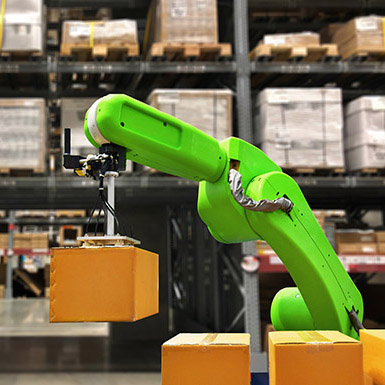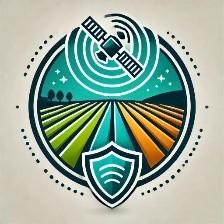Envira
Denmark
Future of Retail
July, 17 / 2025
How space technology is helping bees and biodiversity
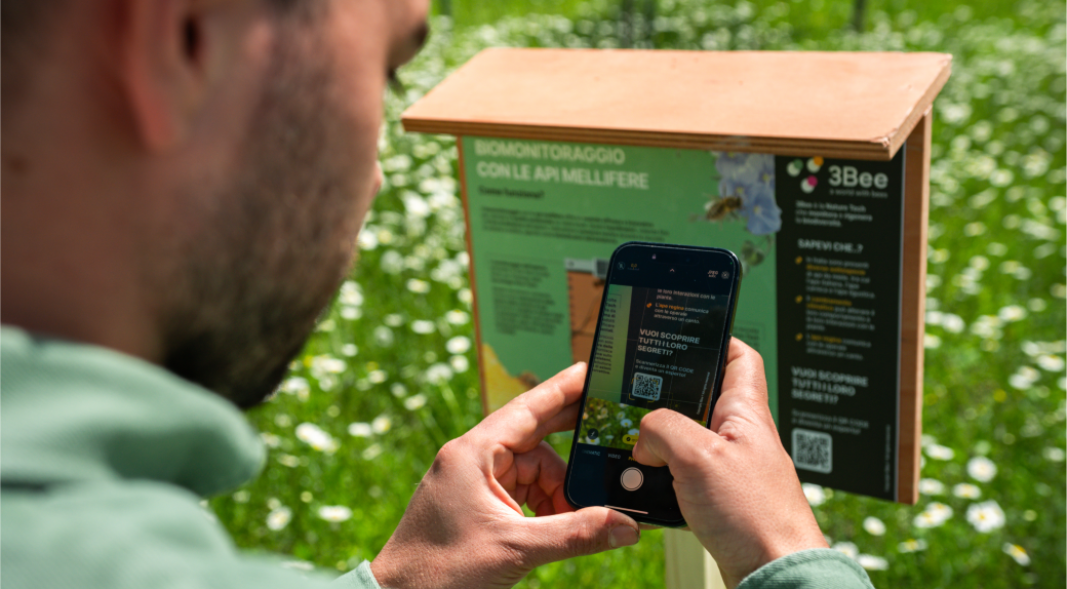
Bees are essential to life on Earth, playing a critical role in pollinating plants that sustain global ecosystems and food supply. However, habitat loss, intensive farming practices, pesticide use and climate change are causing alarming declines in our bee populations. This crisis not only poses severe ecological threats but also presents economic challenges, particularly for agricultural industries that depend heavily on pollination.
To help tackle these challenges, Italian company 3Bee Srl developed Sentinel HIVE-TECH, under ESA’s Business Applications and Space Solutions (BASS) programme. By exploiting satellite technology, Sentinel HIVE-TECH offers innovative services for beekeepers, farmers, and industries seeking to protect biodiversity, improve efficiency and future-proof their operations. Initially aimed at beekeepers and farmers, the project’s commercial success has since expanded, with 3Bee securing contracts worth one million euros across other industries, including infrastructure, energy and real estate.
Beekeeping is intrinsically tied to environmental conditions, yet traditional practices rely on trial and error. 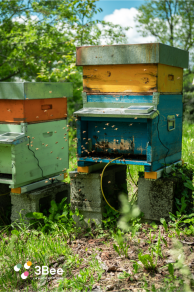 Beekeepers often face lengthy and costly efforts to locate high-nectar zones, forecast honey yields, and prevent colony starvation. In addition, many European countries have seen sharp declines in bee numbers, with severe colony losses linked to extensive pesticide use and inadequate management practices. Without proper nutrition, optimal migration routes and appropriate medical treatments, bee colony health remains at risk.
Beekeepers often face lengthy and costly efforts to locate high-nectar zones, forecast honey yields, and prevent colony starvation. In addition, many European countries have seen sharp declines in bee numbers, with severe colony losses linked to extensive pesticide use and inadequate management practices. Without proper nutrition, optimal migration routes and appropriate medical treatments, bee colony health remains at risk.
For farmers, a pollination service that places healthy beehives near to crops boosts crop quality and yield. However, fewer than 30% of farmers in Europe currently utilise pollination services, often due to the lack of an accessible, user-friendly platform to support these efforts.
Sentinel HIVE-TECH addresses these challenges through a comprehensive pollination and biodiversity mapping platform. By integrating data from ESA Earth observation satellites, Sentinel-1 and Sentinel-2, with AI-processed information collected directly from beehives, the platform delivers accurate, real-time insights into nectar potential, flowering species, and land cover conditions.
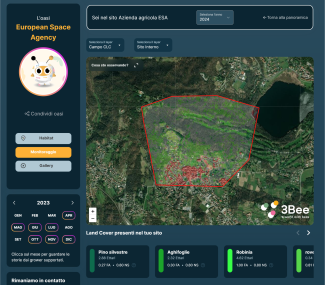 This data is automatically processed, saving both time and resources. Beekeepers benefit by improving their practices and reducing operating costs, with tools to predict income expectations and plan hive placements effectively. Farmers gain from enhanced pollination strategies, ensuring healthy bees are positioned near crops at the right time. These services enable successful pollination, increased yields and reduced use of chemical pesticides.
This data is automatically processed, saving both time and resources. Beekeepers benefit by improving their practices and reducing operating costs, with tools to predict income expectations and plan hive placements effectively. Farmers gain from enhanced pollination strategies, ensuring healthy bees are positioned near crops at the right time. These services enable successful pollination, increased yields and reduced use of chemical pesticides.
Sentinel HIVE-TECH has achieved impressive commercial success with its original target customers, now monitoring 4000 beehives and 22 000 hectares of farmland. The project’s most notable achievement, however, lies in its expansion into industries outside the traditional agriculture sector.
3Bee has secured contracts worth €1 million from companies in the energy, real estate, and infrastructure sectors. These industries are leveraging Sentinel Hive-Tech to meet stringent biodiversity compliance requirements. For instance, real estate developers are using the service to ensure their projects are biodiversity-friendly by monitoring and reporting on local ecosystems, while energy companies utilise it to mitigate ecological disruption during infrastructure development.
"Sentinel HIVE-TECH demonstrates how space technology can transform biodiversity management," said Rita Rinaldo, Head of Applications, Projects and Studies Division at ESA. "By providing actionable insights, it empowers industries and individuals to safeguard pollinators and create sustainable ecosystems.”
"Thanks to our collaboration with ESA, we have integrated satellite imagery analysis into our operational workflows," said Niccolò Calandri, CEO of 3Bee. “This allows us to generate high-resolution, science-based environmental data – crucial for monitoring biodiversity, assessing climate-related risks, and supporting data-driven sustainability strategies across multiple sectors."
The scalability and cost-effectiveness of Sentinel HIVE-TECH show how space solutions can meet both ecological and regulatory needs, positioning biodiversity at the core of business strategy. Having already extended its reach beyond its original audience, it is solidifying its reputation as a pioneering solution in biodiversity management. As pollinators face increasing threats, solutions like Sentinel HIVE-TECH demonstrate the potential of space technology and innovation to protect biodiversity and support sustainable ecosystems for coming generations.
Looking ahead, 3Bee plans to expand the project’s geographic reach, refine its analytics for greater precision, and develop features tailored to new sectors and environmental challenges. As biodiversity loss accelerates, the company’s mission is clear: to make pollinator protection practical, profitable, and scalable. Powered by ESA and space innovation, Sentinel HIVE-TECH shows how technology can serve nature and support a more resilient future.
ForestBioIndex-NE
July, 10 / 2025
AgriRobot
Denmark
GEOFENCE
July, 9 / 2025
Altus Impact Sarl
Switzerland



